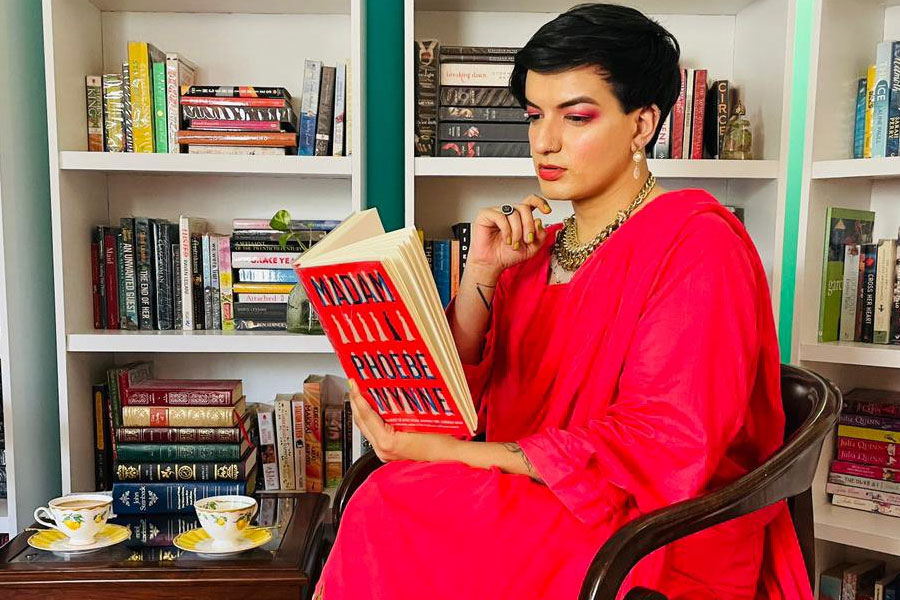- Transgender activist Merub Moiz Awan highlights the issue of “beela” violence within the transgender community, where “beela” refers to individuals who commit violence against Khwaja Siras and trans-feminine individuals due to rejected advances.
- Dr. Moiz describes Beelas as an organized group of criminals responsible for planning and carrying out attacks on Khwaja Siras and trans-feminine individuals, with roots tracing back to the colonial era.
- The transgender community in Pakistan has long suffered from such violence, including an incident involving Dr. Moiz and Fauzia in 2019. Advocacy groups like the Gender Initiative Alliance (GIA) are demanding legislative changes and increased government collaboration to address this ongoing issue.
Transgender activist Merub Moiz Awan is a well-known personality who does not shy away from openly talking about violence against the trans community amongst many other topics. In a recent interview, Awan talked about beela violence.
Merub Moiz Awaan shared that the members of the trans community have their own language, which no ordinary man understands, one of the words that is commonly used is ‘beela’ which is a form of violence.
The term “Beela” describes individuals who engage in acts of violence against Khwaja Siras and other trans-feminine individuals as a response to their rejection of coercive sexual advances.
Dr. Moiz characterizes Beelas as an organized group of criminals who meticulously plan, stalk and carry out attacks on Khwaja Siras, trans-feminine individuals, and young boys.
This pattern of violence is not a recent development but rather traces its roots back to the colonial era when the British authorities imposed severe restrictions on the vibrant Khwaja Sira culture and attempted to completely obliterate the community.
This historical injustice has resulted in the ongoing marginalization and hostility the Khwaja Sira community faces, which frequently manifests in discriminatory attitudes, the erasure of their cultural heritage and humanity, and physical violence against its members.
She continues to say that beela are men who inflict violence on transgenders because in their minds they own them. These men ra*e, and at times murder them too.
The trans community in Pakistan has repeatedly been subjected to such violence. They’ve protested against it as well, asking for their rights, unfortunately, it hasn’t been fruitful.
One such beela violence incident happened with Dr Moiz in 2019. On the evening of September 19th, Dr. Moiz and Fauzia arrived at a farmhouse located on the outskirts of Karachi to participate in the birthday celebration of their fellow Khwaja Sirah, Shehzadi. Upon reaching the farmhouse gate, their vehicle was encircled by a group of approximately twelve Beelas who singled out Dr. Moiz and Fauzia, attempting to launch an assault.
Rather than fleeing or succumbing to fear, Dr. Moiz and Fauzia chose to stand their ground and resist. Thanks to their courageous resistance, the group of Beelas was ultimately compelled to retreat from the scene. Dr. Moiz later recounted the incident in a video that quickly gained widespread attention on social media, shedding light on this unfortunate occurrence.
“At least a dozen Beelas surrounded our car, specifically targeting me and Fauzia. They made forceful attempts to pry open the car’s front door. Subsequently, they seized hold of my shirt and attempted to pull me out of the vehicle. One of them struck me in the face, leaving visible marks of the violence.
However, when that blow landed, something within me compelled me to fight back. It was then that I began defending myself by kicking them,” Dr. Moiz explained.
The call for yesterday’s protest originated from an organization known as the Gender Initiative Alliance (GIA), a non-profit dedicated to the well-being of Pakistan’s Khwaja Sirah community.
In addition to the protest, GIA members held a press conference within the premises of the Karachi Press Club, where they issued demands for effective legislation from the Sindh Assembly to combat gender-based violence against the Khwaja Sira community in Pakistan.
The GIA also urged the provincial government to enhance its collaboration with non-governmental organizations already working towards the betterment of their community.
“Our existing legal framework is insufficient in addressing the threat posed by the Beela syndicate, which is causing significant harm to the transgender community in Pakistan. Our research indicates that a single area in Karachi alone is home to more than 150 members of the Beela syndicate.
One can only imagine the extent of their presence throughout Karachi. When incidents of violence occur, and we manage to file an FIR, these individuals exploit legal loopholes, securing bail almost instantly. Once released, they return to their activities without remorse,” elaborated Shehzadi Rae, a case officer at GIA.
Stay tuned to WOW360.
